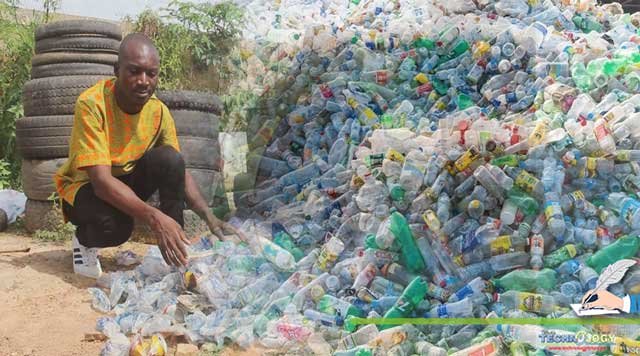Plastics have been the biggest source of pollution which are growing at an alarming rate Nevertheless, people use it endlessly for their comfort.

By Muhammad Ibrahim Noon
Now even if plastic production is completely stopped which is impossible, the question arises for the available plastic in the form of waste, raw materials or as end-products. Since plastics take at least one thousand years to decompose, removing the already produced plastic is another problem. According to a recent survey, fifty-percent of the total plastic produced from 1950-2021, has been produced in the last thirteen years! However, “two birds can be killed with one stone”. Studies show that plastic waste such as plastic bags (poly-ethene) and thermos-plastics (poly-propylene) can be used to make “Oil” (or Black Gold) as it is famously know. Plastic waste is passed through the process of pyrolysis i.e. thermal decomposition of plastic waste at high temperatures. The long hydrocarbon chains in the oil are broken down to obtain a liquid oil i.e. pyrolysis oil which was found out to be an oil between diesel and Kerosene. If that oil is purified later, it has the same efficiency rate as that of diesel and kerosene and is capable of fueling motor vehicles.
The process requires a container sealed to prevent oxygen from entering to prevent combustion. The container is provided with a heat source to break it into gases of hydro-carbons i.e. having carbon and hydrogen as the basic units. The gases are condensed using a cooling jacket to form a liquid of pyrolysis oil. This is a raw form of crude oil which when purified and passed through a suitable catalyst, can be used in motor engines. This process is the reverse of “Poly-merisation”, which is the forming of plastics such as poly-ethene using hydro-carbon fuels.
This process is carried out at a small scale with one kilogram of plastic waste producing one kilogram of fuel. Nonetheless, If the government pursues this, it can very much be produced at a larger scale producing great output since this reaction mixture produces great yield. Thus, it can not only aid in the “Clean Green Pakistan” a campaign lead by Prime Minister, Imran Khan, by reducing the plastic waste. But in the long run, Pakistan will have to import five-percent less crude oil. According to a report from Dawn, Pakistan spends a total of $6.7 billion on oil imports. If Pakistan uses the process of pyrolysis on a large scale, it can save up to $0.335 billion dollars annually!
Author : My name is Muhammad Ibrahim Noon and I am a final year O-level student at Lahore Grammar School, Johar Town. I have a keen interest in Pakistani Current Affairs, Economy and Environment.